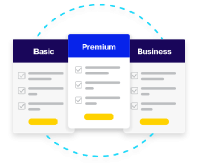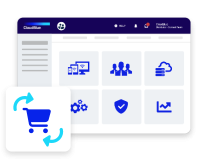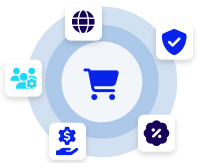Proactive sales is a strategic approach where sales teams actively seek opportunities to engage potential customers and address their needs before those needs are explicitly expressed.
Unlike reactive sales, which respond to inbound inquiries, proactive sales anticipate needs and prioritize building long-term relationships. In SaaS businesses, this approach focuses on highlighting product value and offering tailored solutions to prospects, often through personalized outreach, demos, and relationship-driven tactics.
Proactive sales aim to foster trust and credibility with potential customers by demonstrating an understanding of their challenges and providing solutions that align with their goals. It’s about being a step ahead and consistently delivering value.
Key Components of Proactive Sales
Proactive sales strategies hinge on understanding customer needs and aligning solutions to those needs. Tools like CRM software and account-based marketing (ABM) play a significant role. A CRM system allows sales teams to track interactions, identify patterns, and tailor outreach efforts to individual prospects. Meanwhile, ABM enables businesses to focus on high-value accounts with personalized campaigns.
Demos are another crucial aspect of proactive sales. They offer potential customers a hands-on experience with the product, showcasing its features and how it solves specific challenges. Proactive sales teams use demos not just to highlight product value but also to create a collaborative experience that builds trust.
Additionally, understanding market trends and customer pain points is essential. Sales teams that stay informed can anticipate needs and position their SaaS solutions as the perfect fit for evolving challenges.
Why Proactive Sales Matter in SaaS
In the competitive SaaS landscape, proactive sales can be a game-changer. SaaS products often involve longer sales cycles and require building strong relationships with decision-makers. Proactive strategies help sales teams stay top-of-mind and build credibility over time.
By anticipating customer needs, proactive sales teams can position their solutions as indispensable tools for achieving business goals. This approach reduces the likelihood of churn and fosters loyalty, as customers feel understood and supported.
Proactive sales also enable companies to differentiate themselves in a crowded market. By delivering tailored solutions and prioritizing customer relationships, SaaS businesses can stand out and drive long-term success.













